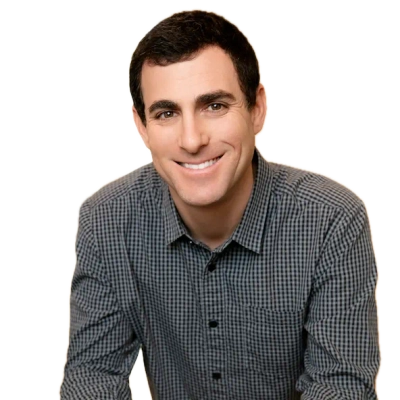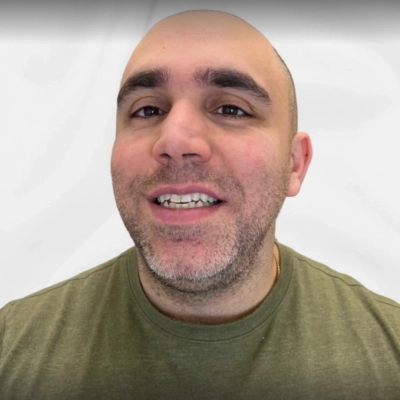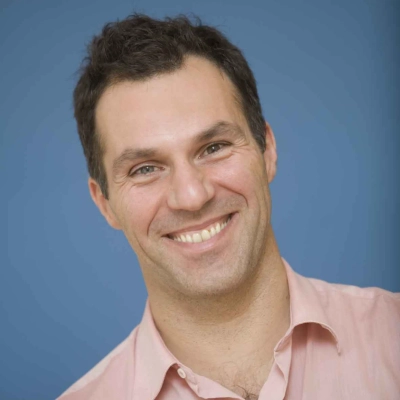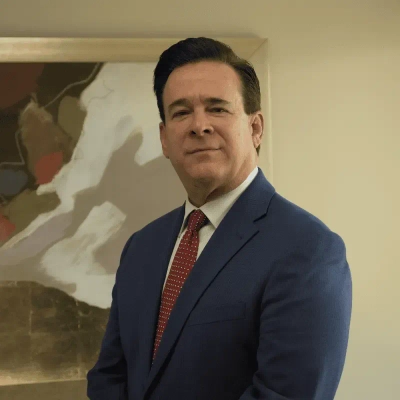Surprising Support Systems: Entrepreneur Success Stories Revealed
Behind every successful entrepreneur lies a network of surprising support systems that often go unmentioned, as leading experts in business development reveal in their candid insights. This collection of entrepreneurial success stories highlights unconventional approaches that have transformed businesses, from establishing accountability partnerships to creating space for dissent. Drawing from the wisdom of seasoned business coaches, operators-turned-mentors, and community-focused leaders, these practical lessons offer valuable perspective on building sustainable success.
- Slowing Down Made Me a Sharper Leader
- Permission to Lead as Fully Human
- Focus Beats Opportunity Through Trusted Accountability
- Trust Issues Solved Through Peer Accountability
- Operators Became Mentors in Entrepreneurial Trenches
- Parental Independence Created Freedom to Take Risks
- Setting Boundaries Empowered My Entire Team
- Community Connection Drives Barbershop Brand Success
- Creating Space for Dissent Strengthens Product Security
- Delegation Transformed From Limitation to Strategic Advantage
- Embracing Blind Spots Built a Confident Culture
- Business Coaching Built My Strategic Support Network
- Small Gestures Create Momentum Beyond Revenue
- Patience Replaced Speed for Steadier Business Growth
- Family Taught Calm Decisions Win More Cases
Slowing Down Made Me a Sharper Leader
One unexpected way my support system has contributed to my growth as an entrepreneur is by teaching me the value of slowing down. I’ve always been wired to chase growth, push harder, and outwork the challenges in front of me. But a few people in my circle — friends, mentors, and even family — kept reminding me that constant hustle wasn’t sustainable. At first, I brushed it off. Slowing down felt like falling behind.
Over time, though, I started listening. Taking breaks, setting clearer boundaries, and actually stepping away from the business gave me perspective I didn’t know I needed. Some of my best strategic decisions came not at my desk, but while I was recharging — whether that was during a run, over a long dinner conversation, or even just spending time with my kids. The support system around me gave me permission to detach from the grind, and ironically, that detachment made me a sharper, more effective leader.
The impact on the business was tangible. Instead of running in constant firefighting mode, I had the headspace to spot patterns and think longer-term. We shifted from reactive decision-making to proactive planning, which strengthened both our operations and our culture. The team felt it too — when I showed up calmer and more focused, it set the tone for everyone else. Performance improved not because I pushed harder, but because I modeled a healthier way to work.
The biggest lesson was that growth isn’t just about adding skills or scaling strategies — it’s also about unlearning habits that hold you back. Without my support system, I might still be caught in the trap of equating busyness with progress. Instead, I learned that clarity comes from space, and space only comes when the people around you remind you to step back.
For any entrepreneur, I’d say this: your support system isn’t just there to cheer you on. Sometimes their greatest gift is pulling you back, helping you see the bigger picture, and reminding you that who you are outside the business directly shapes what the business becomes.
Permission to Lead as Fully Human
One of the most unexpected ways my support system has shaped me wasn’t through advice or strategy; it was through permission. Specifically, permission to be more human in my leadership.
In the early days of building my company, I carried this weight, the belief that as a founder, I had to be endlessly resilient, always composed, always the one who could “figure it out.” I thought leadership meant shielding my team from doubt, stress, or hesitation. And I played that role hard.
But behind closed doors, I was drained. The constant pressure to project strength was isolating. It made it harder to ask for help, harder to delegate, and harder to let go of perfectionism.
What shifted that for me wasn’t a mentor giving me a productivity hack. It was a conversation with a close friend, not even someone in business, who said, “You don’t have to earn your worth through output.”
That sentence hit me like a brick. Because deep down, I had been tying my self-worth to performance. As many founders do, I’d convinced myself that if I wasn’t constantly pushing, producing, or solving, I was falling behind.
That moment cracked something open. It gave me permission to slow down, to rest, to show up with more honesty, not just with myself, but with my team.
And strangely enough, that is what made me a better leader. Because when I stopped pretending I had it all together, I made space for others to do the same. Our culture got more real. Feedback became more honest. We started building with more empathy and less ego.
I started naming when I was tired. I admitted when I didn’t know. I created space for team members to challenge ideas without fear. And that shift, toward psychological safety and emotional honesty, is now baked into everything we teach. My support system didn’t just catch me when I fell. They reflected a version of me that didn’t have to perform to lead. And that changed how I build.
And the truth is, my real support system extends beyond business. I’ve leaned heavily on friends who remind me who I am outside of work. On late-night board games and pickup volleyball matches that release the pressure. On family dinners that pull me out of my head and into the moment. Those people don’t want my pitch deck. They want me. And that’s grounding.
So no, this isn’t a silver bullet or a flashy answer. But it’s the one I’d bet on. Because the boring, unsexy truth is: the version of you your company needs most is the one who’s grounded, supported, and fully human.

Focus Beats Opportunity Through Trusted Accountability
One unexpected way my support system has contributed to my personal growth as an entrepreneur is by keeping me grounded when I was tempted to chase too many opportunities at once. Early on, I wanted to take on every client, every project, and every marketing trend, but my inner circle — family and close friends — reminded me that focus is what leads to real growth. Their perspective helped me slow down, prioritize, and concentrate on long-term strategies rather than short-term wins. That shift in mindset not only reduced burnout but also allowed me to build more sustainable systems that continue to serve my business today.
A real example of this came when I nearly expanded into a side project that would have pulled resources away from my core SEO work. My support system questioned whether the move aligned with my bigger vision, and their pushback made me reevaluate. I decided against the distraction and instead doubled down on refining processes for existing clients, which ultimately improved retention and referrals. That kind of outside accountability has been invaluable — by trusting their input, I grew more disciplined as an entrepreneur, and that discipline directly translated into stronger business results.

Trust Issues Solved Through Peer Accountability
Honestly, one of the most unexpected influences on my growth as an entrepreneur came from my peer accountability group. It started out as just a monthly meetup to swap business challenges, but over time, it turned into a space where I had to get real about blind spots — especially around delegation. I remember one meeting where I was venting about how overloaded I felt, and someone bluntly said, “You don’t have a time problem, you have a trust problem.” That stung, but they were right. I was holding too much because I was afraid someone wouldn’t handle it the way I would.
That one conversation pushed me to rethink how I build and trust my team. I started giving team leads full ownership of client initiatives — with metrics, accountability, and room to make decisions. The result? Faster project delivery, higher employee engagement, and most importantly, more headspace for me to focus on strategy instead of putting out fires. Letting go a little actually helped the business grow more efficiently — and it wouldn’t have happened without that nudge from people outside my immediate bubble.

Operators Became Mentors in Entrepreneurial Trenches
The most unexpected contributor to my growth came from our network of 1,700+ independent operators — many of whom are minorities, women, and veterans running family businesses. I initially thought my role was just coordinating services, but these operators became my entrepreneurship professors, teaching me resilience through their stories of building businesses from scratch.
One veteran-owned operator in Ohio was struggling with a major client complaint about expired products. Instead of replacing them, I spent time understanding their inventory challenges and helped redesign our quality assurance process. That conversation taught me that real leadership means getting into the trenches with your partners, not just managing from above.
This shift changed everything. We moved from being a typical management company to becoming a true support system for independent operators. When one of our clients saw their employee satisfaction scores improve substantially after we implemented subsidized micro markets, it was because our operators felt genuinely supported and delivered exceptional service.
The business results speak for themselves — utilization doubled at that client location, and we’ve expanded our operator network significantly. But the real win is that I learned entrepreneurship isn’t about having all the answers; it’s about building relationships where everyone grows together.

Parental Independence Created Freedom to Take Risks
One of the most unexpected ways my support system has contributed to my growth as an entrepreneur has been through independence — not dependence.
Coming from India where there’s a strong bond between parents and children, it’s common for generations to stay intertwined emotionally and sometimes financially. But in my case, my parents who are now in their 70s have always led a deeply independent life.
That independence has been an enormous gift. I’ve seen friends whose parents depended on them early on, which often meant those friends had to play it safe like staying in the same job or avoiding risks. My situation was different. Because my parents were self-sufficient, I had the freedom to pursue higher education, invest in my business, and take risks that were essential for growth.
It’s something I didn’t consciously realize at first, but their independence gave me the space, time, and emotional bandwidth to focus fully on building something of my own.
My immediate family has also been an incredible source of support, especially my wife. She manages many responsibilities at home, often absorbing unexpected disruptions whether it’s a support staff issue or one of our children falling ill. Her ability to hold things together allows me to stay focused during demanding phases of work.
That trust, the quiet confidence that each of us is handling our part, has been a powerful force behind both my personal growth and business success.
I’ve learned that sometimes the most meaningful support isn’t about direct help; it’s about creating the freedom to grow.

Setting Boundaries Empowered My Entire Team
The most unexpected help came from my wife during the early years of my business. I used to bring work home every night — constantly thinking about customers, scheduling, and cash flow. One evening, she shared something that stuck with me: “You can’t expect your team to balance their lives if you never show them how.” It hit me hard. I realized I was setting a pace that wasn’t sustainable, not just for me but for everyone following my lead. Taking her advice, I started drawing real boundaries — delegating more, trusting my managers, and actually taking time off without checking my phone every hour.
That shift changed everything about how I led the business. Once I stopped micromanaging and gave people room to own their roles, they stepped up in ways I hadn’t imagined. Our customer retention improved, employee turnover dropped, and the team became tighter and more confident. It taught me that personal growth doesn’t always come from a seminar or a mentor — it sometimes comes from the people who see you at your most human. My wife’s honesty helped me become a better leader, and the balance she encouraged me toward has become a cornerstone of how we run the company today.

Community Connection Drives Barbershop Brand Success
I never fully appreciated the impact of community engagement until my support system encouraged me to see our barbershop as more than just a place for haircuts. Friends, family, and colleagues reminded me that relationships with local clients could define our success. They encouraged me to focus on personalized experiences, hosting small events, and genuinely connecting with each person who walked through our doors.
This mindset pushed me to grow in patience, empathy, and attentiveness. I became more intentional in listening to clients’ stories, remembering their preferences, and celebrating milestones. These small but meaningful interactions enhanced my interpersonal skills and taught me that building a brand isn’t just about marketing; it’s about becoming part of the community you serve.
The result has been a loyal and engaged client base that feels connected to my business. People don’t just come for a haircut; they come for the welcoming environment and personal attention we provide. This growth, fueled by the advice and support of my inner circle, has helped me shape a business model centered on trust, connection, and long-term relationships, which ultimately drives both reputation and revenue.

Creating Space for Dissent Strengthens Product Security
Something that surprised me was how emotional intelligence from my support network helped me learn that listening can be more effective than talking. Founders tend to default into telling everyone what they’re going to do, and I was informed that sometimes, during meetings, I wasn’t allowing enough space for others to question or express concerns.
I intentionally designed more open space, such as team retrospectives, anonymous feedback, and encouraging dissent. In our efforts at privacy, this has led to more in-depth threat modeling and more internal criticism for weaknesses. Security features like OpenPGP, symmetric encryption, and key storage are now more thoroughly vetted.
That transition reduced errors and surprises at audit time. Morale is better as well. When people are heard, they care more about the product. That shows up in less turnover and more internal promotion, so talent stays in the business.
In a product where trust comes first, that kind of reliability is a real competitive advantage.

Delegation Transformed From Limitation to Strategic Advantage
One unexpected way my support system helped me grow as an entrepreneur was by challenging my tendency to take everything on personally. A mentor once pointed out — kindly but directly — that trying to “do it all” wasn’t dedication, it was a bottleneck. That perspective forced me to confront my reluctance to delegate, which I hadn’t even recognized as a leadership limitation.
Learning to step back and trust others didn’t just lighten my workload — it built confidence within the team and created space for new ideas and ownership. That personal shift directly reflected in our business. Decision-making became faster, operations scaled more smoothly, and our service quality improved because team members felt empowered rather than directed. What started as emotional support turned into strategic growth.

Embracing Blind Spots Built a Confident Culture
For years, I thought being a founder meant doing everything myself. But my real growth began when I started surrounding myself with people who could call out my blind spots — mentors, peers, even team members. One designer once told me, “You’re making decisions from fatigue, not vision.” It stung, but she was right. That feedback loop made me more self-aware and humble.
That humility seeped into the business. I stopped pretending to have all the answers and started letting the team own decisions. The result was a more confident culture and better creative outcomes. A strong support system doesn’t just cheer for you — it holds up a mirror. And when you grow personally, your business scales naturally with more clarity and trust.

Business Coaching Built My Strategic Support Network
Hiring my first business coach eight years ago was truly transformative, despite my initial fear and uncertainty about the investment. This decision became the catalyst for building the comprehensive support system my business relies on today. Taking that first uncomfortable step taught me that seeking expertise isn’t a sign of weakness but rather a strategic advantage that compounds over time. The personal growth I experienced through learning to trust others with aspects of my business has directly translated to our ability to scale operations and serve more clients effectively.

Small Gestures Create Momentum Beyond Revenue
One of the most unexpected ways my support system has helped me grow as an entrepreneur is through the small things — friends and family sharing a post, recommending the business to someone, or just asking how things are going. It might not sound like much, but those little gestures create momentum and keep you grounded.
Building a brand takes time, and there are plenty of long days where progress feels slow. Seeing people you care about champion what you’re building reminds you that the work matters — not just to clients, but to the people who know you best.
That encouragement has shaped how I lead. It’s made me more intentional about community, gratitude, and paying that same support forward to others. And that mindset — building relationships, not just revenue — has been a big part of our business success.

Patience Replaced Speed for Steadier Business Growth
My support system pushed me to slow down when I thought speed was the only edge. That shift taught me patience in decision-making, which reduced costly missteps. Personally, it made me more measured and less reactive. In business, it showed up as steadier growth — fewer pivots, more deliberate moves, and a culture that values precision over haste.

Family Taught Calm Decisions Win More Cases
When I first started my Miami personal injury firm, I believed success depended solely on long hours and legal skill. What I did not expect was how much my family and close friends would shape my growth as an entrepreneur. During challenging times, especially early cases where settlements were delayed or medical malpractice claims grew complex, they reminded me to slow down, stay grounded, and focus on the people behind each case, not just the numbers on the ledger.
Their support taught me humility and balance. My mother often said that a calm mind wins more cases than an anxious one, and she was right. By learning to manage stress and maintain perspective, I became a better listener and advocate. That personal growth transformed how I lead my firm.
Now, every decision, from how we communicate with clients to how we handle negotiations, reflects the same patience and empathy my support system instilled in me. The result has been stronger client relationships, more referrals, and a workplace culture centered on genuine care. Success in business often starts with emotional maturity, and that lesson came directly from the people who believed in me before the wins ever did.



